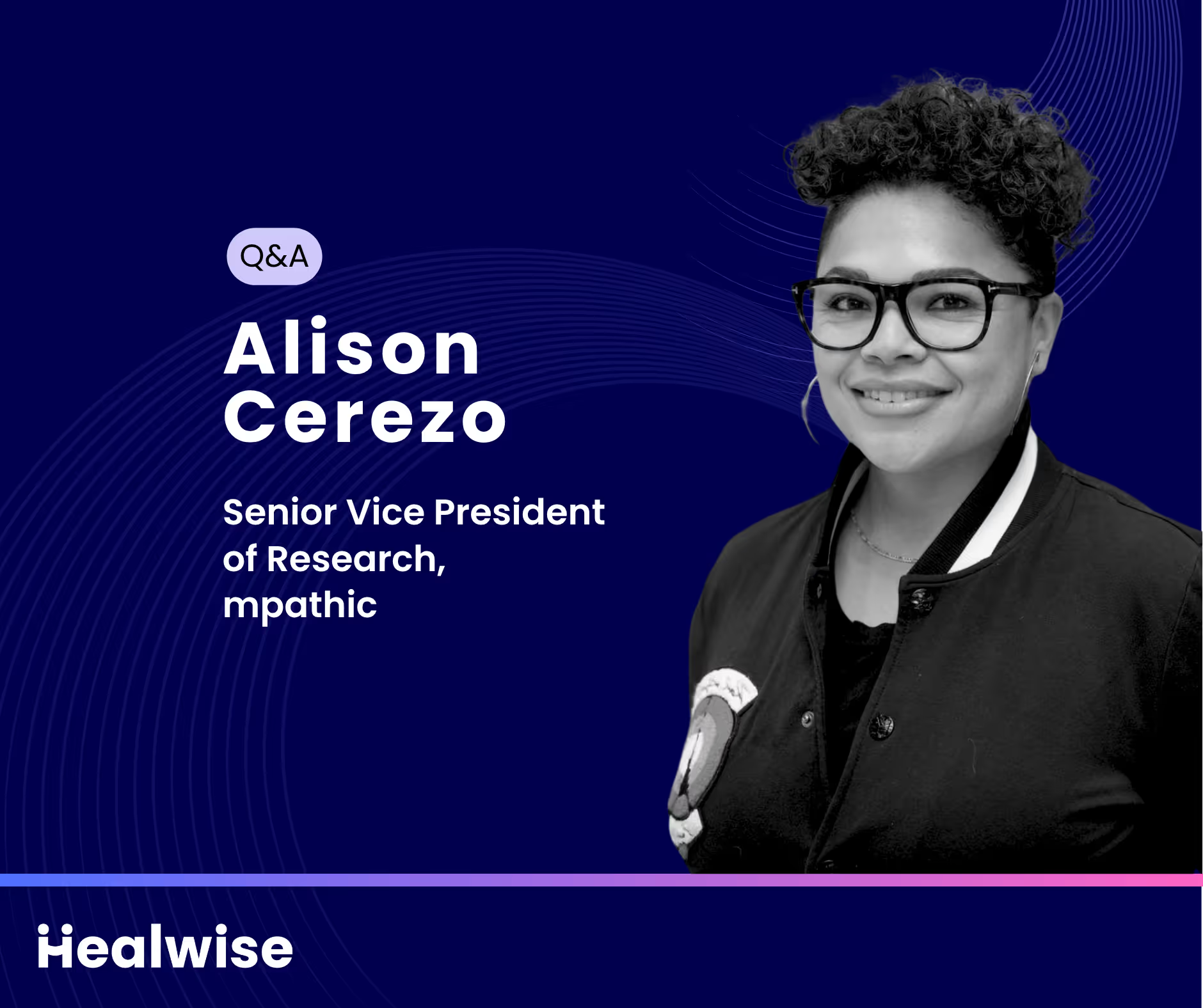
There’s no one-size-fits-all answer to fixing mental health care. For Dr. Alison Cerezo—a clinical psychologist, longtime academic, and head of research at mpathic—the key is starting with what people actually need, and building from there.
Dr. Cerezo’s background spans organizing, clinical research, higher education, and AI product development. Today, she’s using all of it to ensure that mpathic’s work in mental health technology reflects the complexity of real-world care and the lived experiences of underserved communities.
We spoke with Dr. Cerezo, a member of our Mental Health Advisory Board, about her career path, their approach to equitable mental health innovation, and how she sees AI playing a role in the future of care. Here are a few takeaways from our conversation.
Connecting someone to a therapist is only one part of the equation. For Dr. Cerezo, one of the biggest barriers to care is the lack of providers who reflect or understand the lived experiences of the people seeking help.
“A major challenge that I see is that sometimes there’s not enough providers,” they said. “If that’s a provider that speaks Tagalog, or a provider that has the competence to understand what the lived experience is for a Muslim woman, sometimes the barrier isn’t just connecting people to the provider. It’s expanding the capacity of who can deliver mental health services.”
Dr. Cerezo points to innovative models like Peers.net and Fellow, where youth and people in recovery are trained as certified health coaches to support others with shared experiences. These models, she says, help fill a critical gap while staying grounded in community.
At mpathic, Dr. Cerezo is leading research efforts that use AI to strengthen, not replace, clinical decision-making. From helping surgeons improve communication to flagging inconsistencies in mental health assessments, the focus is on quality and oversight.
“I care a lot about the precision of the assessment tool,” she explained. “It takes me like 90 to 120 minutes to review an administered depression scale. It takes the LLM four minutes—and it also gives coaching on how to improve or where there was discrepancy in scores.”
They are quick to note that AI isn’t about cutting corners. “It should never replace a human,” she said. “It should be giving the human assistance. Like a multivitamin or a cup of coffee—it helps you do more of what you’re already good at.”
Dr. Cerezo’s organizing roots show up in their approach to research and product development. Whether writing grants or advising startups, she begins with the same question: What’s the real issue here—and how can we help solve it?
“I feel like that’s my activism background,” they said. “I want to understand what the issue is, and then use whatever tools we can to solve that issue.”
That mindset has led them to challenge assumptions about format and delivery, especially when it comes to young people. She recalls working with a tool for LGBTQ+ youth that relied heavily on text content. “The youth—they’d be on the app for like one minute and then they’re back on TikTok,” they said. “We had to advocate—like, you all should be using video-based. You’ve got to give it to the youth how they engage with technology.”